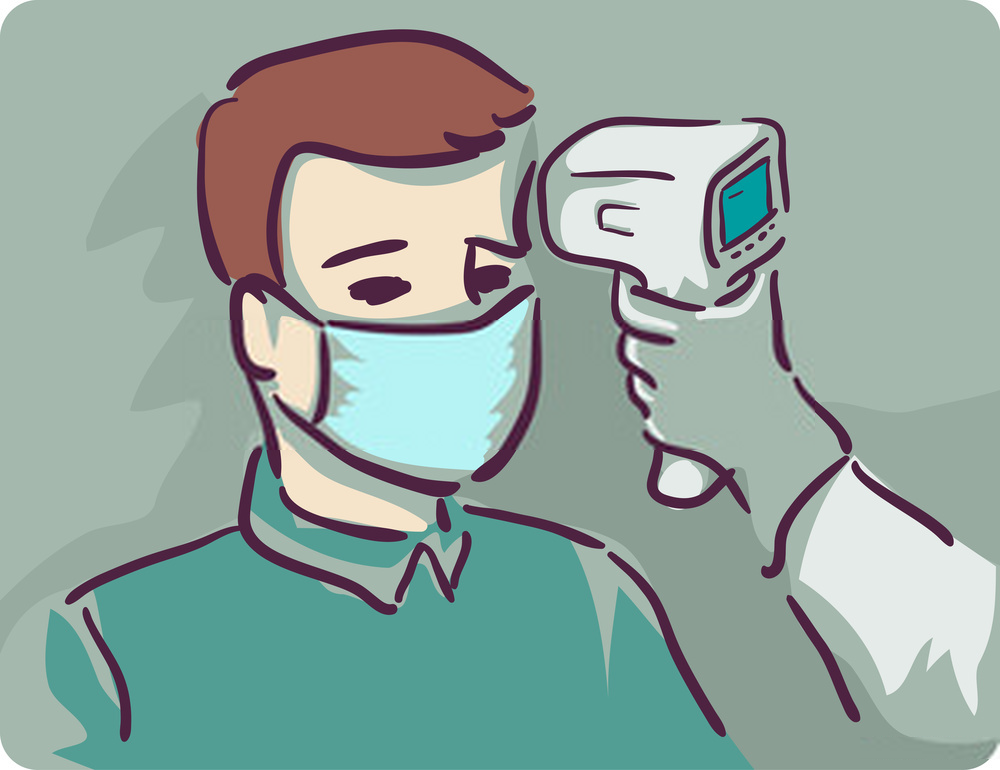Coronaviruses are one type of virus. There are many different kinds, and some cause disease. A newly identified type has caused a recent outbreak of respiratory illness, now called COVID-19 that started in China. In December 2019.
Since the initial outbreak, this coronavirus, known as SARS-CoV-2, has spread to more than 100 countries around the world and has affected many thousands of people.
The disease is more likely to cause symptoms in older adults and those with underlying health conditions. Most people who develop symptoms of COVID-19 experience:
- fever
- shortness of breath
- fatigue
- cough
What to Do If You Are Sick?
Symptoms of COVID‑19 may show up 2‑14 days after exposure. The steps you should take if you think you are sick with COVID‑19 depend on whether you have a higher risk of developing severe illness.
- People 65 years or older, and/or people with medical issues, like heart disease, diabetes, high blood pressure, cancer, or a weakened immune system, are at a higher risk for getting very sick from COVID‑19.
- If you are a high-risk individual and you develop fever or symptoms, call your doctor.
- If you are not sick enough to be hospitalized, you can recover at home. Follow your doctor's instructions and refer to CDC recommendations for how to take care of yourself at home.
General Population:
- If you are in generally good health and have mild symptoms, stay home and take care of yourself like you would for a cold or the flu.
- If symptoms worsen, call your doctor.
If you need help to find a doctor or accessing medical care, call 2‑1‑1, and they can direct you to be low- or no-cost providers in your area.
COVID-19 Testing
- Your doctor will help make the decision if you should get tested for COVID‑19.
- If you do not have health insurance, you can still get tested for COVID‑19 if your doctor or healthcare provider recommends it.
- For information about testing, you need to call your doctor and/or access care the way you usually do. If you need help finding a doctor or accessing medical care, call 2‑1‑1, and they can direct you to be low- or no-cost providers in your area.
Symptoms of COVID-19
Patients with COVID‑19 have reportedly had mild to severe respiratory illness. Symptoms can include:
Prevention of COVID-19
The novel coronavirus is primarily transmitted from person to person. At this point, the best way to prevent getting infected is to avoid being around people who have been exposed to the virus.
There is currently no vaccine to prevent COVID‑19. The best way to prevent infection is to take steps to avoid exposure to this virus, which are similar to the actions you take to avoid the flu.
DSHS recommends these everyday actions to help prevent the spread of any respiratory virus, including COVID‑19:
- Wash often hands for 20 seconds and encourage others to do the same.
- If no soap and water are available, use hand sanitizer with at least 60% alcohol.
- Cover coughs and sneezes with a tissue, then throw the tissue away.
- Avoid touching your eyes, nose, and mouth with unwashed hands.
- Disinfect surfaces, buttons, handles, knobs, and other places touched often.
- Avoid close contact with people who are sick.
DSHS also recommends that you start practicing social distancing. Social distancing involves staying away from other people to avoid catching or spreading illness.
It's a fancy term for avoiding crowds and minimizing physical contact. This could mean avoiding concerts or weddings, skipping the handshake, and/or staying at least six feet away from others.
Older adults are at the highest risk of infection and may want to take extra precautions to avoid coming into contact with the virus.
This is a rapidly evolving situation, and information will be updated as it becomes available. Check back often for the latest details and what need to know about COVID‑19. See also the website for the latest developments on COVID‑19.




Comments
Post a Comment